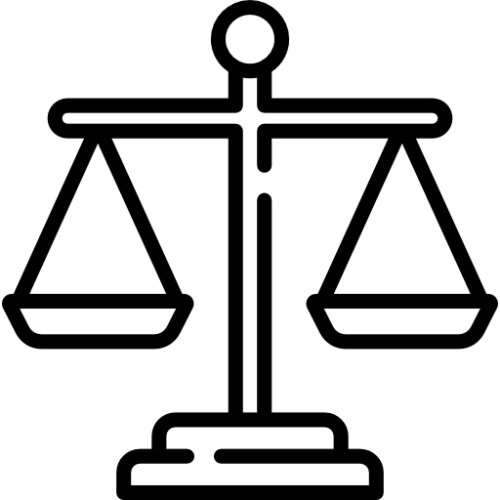Best Education Law Lawyers in Arrecife
Share your needs with us, get contacted by law firms.
Free. Takes 2 min.
List of the best lawyers in Arrecife, Spain
About Education Law in Arrecife, Spain
Education Law in Arrecife, Spain refers to the combination of national, regional, and local statutes and guidelines that regulate the provision, structure, and administration of education. Arrecife, located in the Canary Islands, follows Spanish national education regulations while also adhering to directives and rules established by the Canary Islands' autonomous community. This legal field includes topics such as access to quality education, students' and teachers' rights and obligations, special educational needs, school discipline, and the oversight of private versus public educational institutions.
Why You May Need a Lawyer
Individuals might need a lawyer specializing in Education Law in Arrecife for various reasons. Some common scenarios include disputes over school enrollment or access, allegations of bullying or discrimination, navigating special education processes, disciplinary proceedings or expulsions, issues concerning teachers' employment rights, and disagreements with school administration decisions. Parents may also seek legal advice if their children are denied reasonable accommodations for disabilities, or if there is a problem with the school’s compliance with national or regional educational standards.
Local Laws Overview
Education in Arrecife is governed primarily by Spain’s national framework, notably the Organic Law on Education (LOE) and the more recent LOMLOE. These laws establish educational stages, outline students’ rights, and set standards for school management. In the Canary Islands, the government has additional competencies, allowing adaptations to specific regional characteristics such as the teaching of Canary Islands culture or language. Local laws also regulate the integration of students with special needs, the duties and rights of teachers and parents, and standards for private and concerted (semi-private) schools. The Canarian Ministry of Education provides further rules on curriculum, school zoning, and the appeals process for educational disputes.
Frequently Asked Questions
What rights do students have in schools in Arrecife?
All students are entitled to quality education, equality of opportunity, and respect for their dignity and personal integrity. They also have the right to express their opinions and participate in school life.
Can schools refuse admission to a student?
Generally, public schools in Arrecife must follow clear admission criteria based on proximity, siblings, and special needs, and cannot refuse students arbitrarily. Appeals can be made if parents believe admission rules were violated.
What can I do if my child is being bullied at school?
Parents should report the situation to school authorities. Schools are obliged to investigate and take appropriate measures. If the response is inadequate, legal action or a formal complaint to the regional educational authority may be appropriate.
Are there provisions for students with disabilities or special needs?
Yes, both national and regional laws mandate inclusion and support for students with disabilities. Schools must provide suitable accommodations and support measures, and parents can demand these if they are lacking.
What steps can I take if I disagree with a school disciplinary action?
Decisions on suspensions or expulsions can be appealed first to the school administration, then to the Canary Islands Ministry of Education, and finally to the courts if necessary.
Can parents choose any school for their child in Arrecife?
Parents can express preferences, but allocation depends on available places, proximity, and other regulated criteria. There are formal processes for allocation and for challenging decisions.
What are the legal obligations of teachers?
Teachers are required to provide a safe and respectful learning environment, follow curriculum standards, and respect students’ rights. Employment matters are governed by both regional regulations and national collective agreements.
How are private and public schools regulated differently?
Both follow core national and regional educational standards. However, private schools have more autonomy on admissions and curriculum when compared to public or concerted (partly government-funded) schools.
What role do parents have in school governance?
Parents can participate in school councils, voice concerns in formal meetings, and are legally entitled to information about their child’s education and school functioning.
How can I file a complaint about an education issue?
Complaints can be submitted to the school’s principal, the school council, or directly to the Canary Islands Ministry of Education. If these do not resolve the issue, legal proceedings may be pursued.
Additional Resources
- Canary Islands Ministry of Education: Handles educational policy, complaints, and appeals. - School Councils: Forums for parental participation and initial dispute resolution. - Local bar association in Lanzarote: For referrals to lawyers specializing in Education Law. - Ombudsman of the Canary Islands: Accepts complaints regarding public services, including education. - Spanish Ministry of Education and Vocational Training: National guidelines and official documents. - Nonprofit organizations supporting children’s rights: Can provide advice and advocacy in education cases.
Next Steps
If you need legal assistance regarding Education Law in Arrecife, start by collecting all relevant documents such as correspondence with the school, disciplinary notices, or medical records if applicable. Consider contacting the school directly to resolve minor issues. If the matter is unresolved or complex, seek a qualified lawyer with experience in Education Law in the Canary Islands. The local bar association can help you find suitable legal counsel. For urgent matters involving discrimination or safety, you may also reach out to regional and national authorities or engage with advocacy organizations for additional support.
Lawzana helps you find the best lawyers and law firms in Arrecife through a curated and pre-screened list of qualified legal professionals. Our platform offers rankings and detailed profiles of attorneys and law firms, allowing you to compare based on practice areas, including Education Law, experience, and client feedback.
Each profile includes a description of the firm's areas of practice, client reviews, team members and partners, year of establishment, spoken languages, office locations, contact information, social media presence, and any published articles or resources. Most firms on our platform speak English and are experienced in both local and international legal matters.
Get a quote from top-rated law firms in Arrecife, Spain — quickly, securely, and without unnecessary hassle.
Disclaimer:
The information provided on this page is for general informational purposes only and does not constitute legal advice. While we strive to ensure the accuracy and relevance of the content, legal information may change over time, and interpretations of the law can vary. You should always consult with a qualified legal professional for advice specific to your situation.
We disclaim all liability for actions taken or not taken based on the content of this page. If you believe any information is incorrect or outdated, please contact us, and we will review and update it where appropriate.










